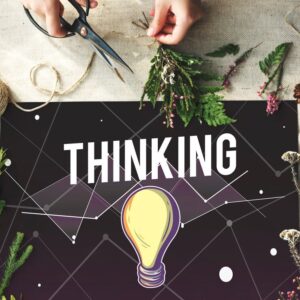How Barcelona AIDICO: A Case Study

Introduction
Barcelona, a vibrant city renowned for its rich history, stunning architecture, and lively culture, therefore serves as a pivotal hub for innovation and collaboration across various sectors. In particular, one significant partnership has emerged between the city and AIDICO, the Technological Institute of Construction and Building Materials. Consequently, this article “How Barcelona Aidico” , in detail, explores how Barcelona actively supports AIDICO’s mission to enhance the construction industry through technological advancements, sustainable practices, and strategic partnerships.
Background on AIDICO
Overview
Founded in the early 2000s, AIDICO operates, notably, as a dedicated research and development center with the primary goal of improving construction materials and techniques. Moreover, with a strong emphasis on innovation, AIDICO conducts essential research that addresses, quite significantly, pressing industry challenges, including sustainability, safety, and efficiency.
Mission and Goals
To this end, AIDICO aims to:
- First, promote research in construction technologies.
- Additionally, foster collaboration between academia, industry, and government.
- Finally, enhance the competitiveness of the construction sector through innovation.
Barcelona: A City of Innovation
Historical Context
Historically, Barcelona has long been recognized, without a doubt, as a center for creativity and innovation. In fact, its rich architectural heritage, exemplified by the iconic works of Antoni Gaudí, reflects a spirit of experimentation and ingenuity. Furthermore, in recent years, the city has transformed into a global tech hub, thus attracting both startups and established companies.
The Role of Local Government
Furthermore, the local government of Barcelona plays a crucial role in fostering an environment conducive to innovation. Specifically, initiatives such as Barcelona Activa not only support startups but also encourage entrepreneurial activities, thereby creating a vibrant ecosystem for technological advancement.
The Collaboration Between Barcelona and AIDICO
Initial Partnerships
To begin with, the collaboration between Barcelona and AIDICO began with joint initiatives that were focused on sustainable construction practices. By pooling their resources, both entities, in fact, aimed to tackle challenges in the industry, such as reducing carbon emissions and improving energy efficiency.
Research and Development Projects
One significant project, for instance, involved the development of eco-friendly construction materials. In partnership with local universities and research institutions, AIDICO worked diligently to create biobased materials that effectively reduce the environmental impact of construction.
Case Study: The Green Building Initiative
In addition, the Green Building Initiative sought to develop, comprehensively, a framework for sustainable building practices in Barcelona. Notably, this project successfully brought together architects, engineers, and environmental scientists, thus enabling them to create guidelines for sustainable materials and technologies.
Outcomes
The outcomes of this initiative included, among other things:
- Increased awareness of sustainable practices within the construction industry.
- Development of new building codes that encourage the use of eco-friendly materials.
- A robust framework for measuring the environmental impact of construction projects.
Training and Development Programs
Moreover, to further bolster innovation in the construction sector, AIDICO and Barcelona launched various training and development programs aimed specifically at upskilling professionals. These programs focused on:
- New technologies in construction.
- Sustainable building practices.
- Project management and innovation strategies.
Innovation Hubs and Startups
In addition to the above, Barcelona has also established several innovation hubs that serve, importantly, as incubators for startups in the construction technology sector. Through strategic partnerships, AIDICO has collaborated with these hubs to provide, thereby, mentorship and resources to emerging companies.
Example: The Barcelona Construction Tech Lab
Notably, the Barcelona Construction Tech Lab serves as a collaborative space where startups can develop and test new technologies. AIDICO’s involvement has been instrumental, not only in providing technical expertise but also in facilitating access to essential research resources.
Success Stories from the Collaboration
Project EcoHouse
One standout success story, therefore, is the EcoHouse project, which aimed to build a prototype for a sustainable residential building. Consequently, this project showcased innovative construction techniques and materials that significantly reduced energy consumption.
Features of EcoHouse
The features of EcoHouse include, importantly:
- The use of solar panels for energy generation.
- Rainwater harvesting systems.
- Biodegradable construction materials.
Impact
Ultimately, the EcoHouse project received national recognition and has since served, indeed, as a model for future sustainable developments in Barcelona and beyond.
Advancements in Smart Building Technologies
Additionally, another significant achievement has been the integration of smart technologies into building design. AIDICO and local tech firms collaborated to develop systems that optimize energy use while enhancing occupant comfort.
Key Technologies Developed
Among the key technologies developed are:
- Smart heating and cooling systems that adjust based on occupancy.
- Automated lighting systems designed specifically to reduce energy consumption.
- IoT solutions for real-time monitoring of building performance.
Recognition and Awards
As a testament to their efforts, the collaboration between AIDICO and Barcelona has garnered several awards, including:
- The Green Building Award for innovation in sustainable construction.
- Recognition by the European Union for contributions to eco-friendly building practices.
Challenges Faced by How Barcelona Aidico
Funding and Resource Allocation
Despite these successes, it is important to note that the collaboration faced challenges, particularly in securing funding for large-scale projects. Consequently, competition for resources among various sectors often hampered progress.
Regulatory Hurdles
Moreover, navigating the regulatory landscape for construction projects in Barcelona can be complex. Therefore, AIDICO worked closely with local authorities to streamline processes and ensure compliance with building codes and environmental regulations.
Technological Adoption
While innovation is crucial, it is worth mentioning that the adoption of new technologies in the construction sector can be slow. In particular, many industry professionals are hesitant to embrace change, preferring traditional methods. To combat this, AIDICO has focused on education and demonstration projects to showcase the benefits of new technologies.
Future Directions of How Barcelona Aidico
Expanding the Scope of Collaboration
Looking ahead, the collaboration between Barcelona and AIDICO aims to expand its scope to include:
- International partnerships with organizations in other countries.
- Development of more comprehensive training programs for construction professionals.
- Greater emphasis on digital transformation in the construction sector.
Emphasis on Circular Economy
In light of the growing importance of sustainability, AIDICO plans to focus, specifically, on the circular economy, which emphasizes reducing waste and reusing materials in construction.
Innovations in Building Materials
Finally, ongoing research into new building materials, particularly those derived from recycled or waste products, remains a priority. AIDICO aims, indeed, to lead the way in developing these innovative materials, further enhancing the sustainability of the construction industry.
Conclusion
In conclusion, the collaboration between Barcelona and AIDICO exemplifies how cities can effectively support technological advancements and sustainable practices in the construction industry. By fostering innovation, promoting research, and providing training opportunities, Barcelona has, without a doubt, positioned itself as a leader in this field.
As both entities continue to evolve and adapt to the changing landscape of construction, their partnership is likely, therefore, to yield even more groundbreaking results. Ultimately, AIDICO’s journey in Barcelona serves as a model for other cities aiming to enhance their construction sectors through collaboration and innovation, thus paving the way for a more sustainable and efficient future in construction.
FAQs about How Barcelona AIDICO
1. What is AIDICO?
AIDICO, or the Technological Institute of Construction and Building Materials, is a research and development center focused specifically on enhancing the construction industry through innovation, sustainable practices, and collaboration.
2. How Did the Collaboration Between Barcelona and AIDICO Begin?
The collaboration, indeed, began with joint initiatives aimed at addressing challenges in the construction sector, particularly focusing on sustainability and eco-friendly building materials.
3. What Types of Projects Have Resulted from This Collaboration?
Key projects include, notably, the Green Building Initiative, which developed sustainable building practices, and the EcoHouse project, a prototype for a sustainable residential building.
4. What Role Does the Barcelona Government Play in Supporting AIDICO?
The local government supports AIDICO through funding, creating a favorable regulatory environment, and facilitating partnerships with various stakeholders.
5. What Training Programs Are Offered Through This Collaboration?
The training programs focus specifically on new construction technologies, sustainable practices, and project management, aiming to upskill professionals in the construction sector.
6. What Challenges Does AIDICO Face in Its Collaboration with Barcelona?
AIDICO faces challenges such as securing funding, navigating complex regulations, and encouraging the adoption of new technologies in a traditionally conservative industry.
7. How Has the Collaboration Impacted the Construction Industry in Barcelona?
The collaboration has increased awareness of sustainable practices, developed innovative building materials, and earned recognition through various awards.
8. What is the Future Direction of “how barcelona aidico” ?
Future efforts will focus on expanding international partnerships, enhancing training programs, and promoting the circular economy in construction.
9. How Can Startups Get Involved in This Collaboration?
Startups can engage with AIDICO through innovation hubs like the Barcelona Construction Tech Lab, accessing mentorship, resources, and collaborative opportunities.
10. Why is Sustainable Construction Important?
Sustainable construction reduces the environmental impact of building practices, conserves resources, and promotes healthier living spaces, thereby aligning with global sustainability goals.
for more articles visit ” businesscrux.org”













Post Comment